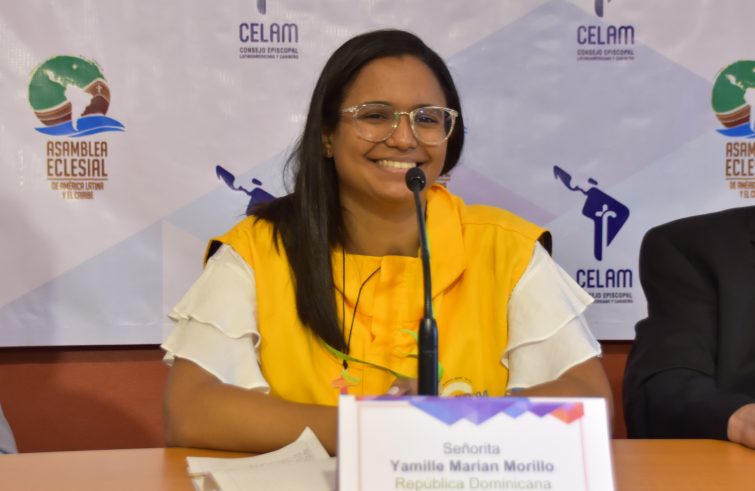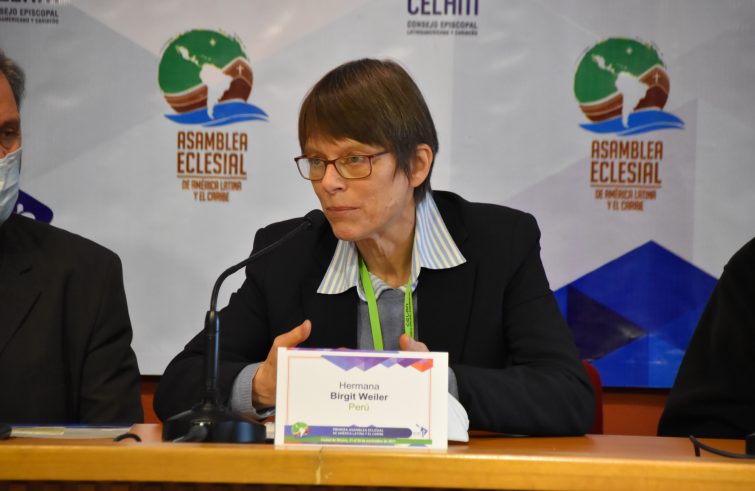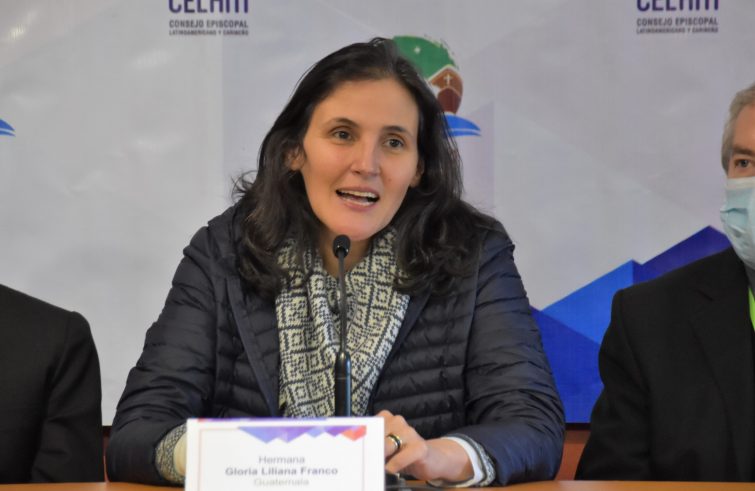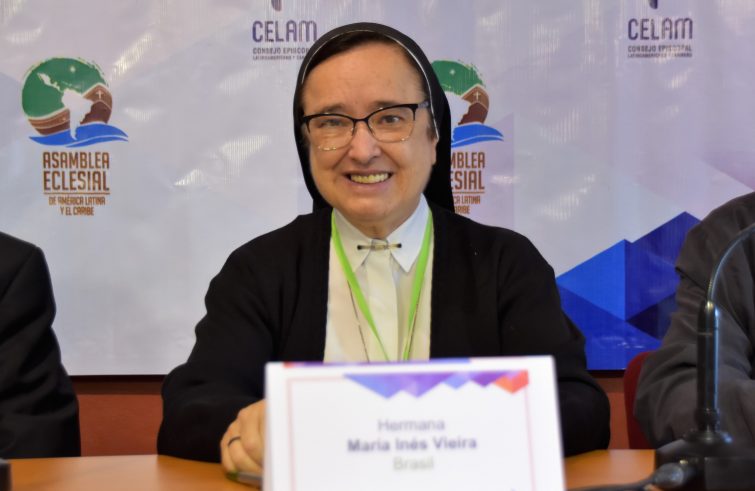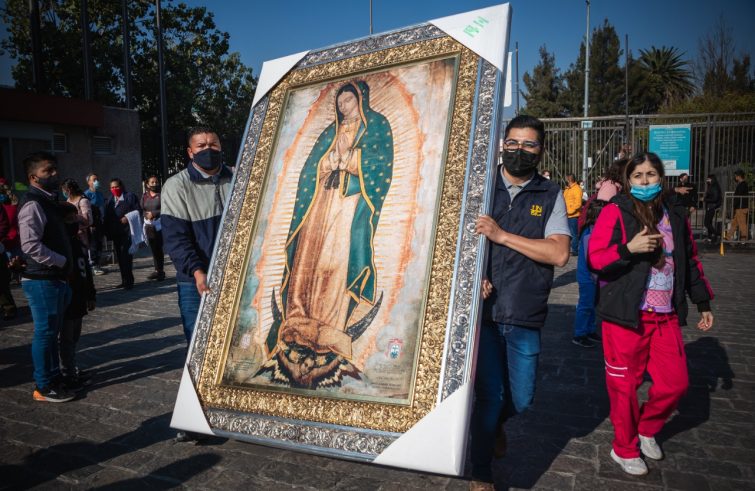
Upon the conclusion of the Ecclesial Assembly on Sunday, November 28, after a week-long session attended by a thousand delegates, most of them in virtual mode (while some were present in person at the headquarters of the Mexican Episcopal Conference, in the hinterland of Mexico City), the Church of Latin America and the Caribbean shows
a young face. A female face. And, also for this reason, it’s a more synodal face.
The final message, released on Saturday, seems to mark the beginning of a journey, of a “process” whose accomplishment involves, as evidenced in its first steps, listening to and participating with the entire People of God. In this regard, “there is no going back”, said the president of the Latin American Episcopal Council, Msgr. Miguel Cabrejos.
“In this assembly, prophetic action was initiated by young people and women”,
said Colombian Sister Liliana Franco, president of the Conference of men and women religious of Latin America (CLAR). SIR asked some of these women to comment on the Assembly and indicate future steps.
Increased attention and acceptance. Sister Birgit Weiler, a German missionary serving in Peru, among the participants who summarised the various contributions received from across the continent, explained: “The act of attentive listening, carried out for the first time in one area only prior to the Amazon Synod, was finally extended to the entire continent. We reached out to the greatest possible number of people, notably those excluded and left behind, despite the pandemic.
During the assembly we have indeed experienced community discernment. The process was not concluded with a final document, but only with a final message, and with prioritising pastoral challenges.
In fact, the process is ongoing with a focus on pastoral challenges and continued listening, involving the national bishops’ conferences called to respond to these challenges in a variety of contexts.” The nun highlighted the attitude of listening in diversity. “We read together the signs of the times and the ecclesial signs, the needs as well as the wounds, the calls to pastoral conversion. Let it suffice to mention the issue of abuse. We recognised that we all share the same responsibility. And we also understood that
pastoral conversion must involve the overcoming of clericalism.”
It was pointed out that said conversion must be conducive to “the active participation of women in discernment and ecclesial decisions”.
- (Foto Celam)
- (Foto Celam)
- (Foto Celam)
“In fact,” said Sister Maria Inês Vieira Ribeiro, president of the Conference of Religious of Brazil, CRB, “there is a growing willingness to listen to everyone, especially to those who are excluded, despised and marginalised.
It should be noted that this awareness is indeed growing, but very slowly, as it does not depend on us alone as Church, considering that we are living in a sexist, excluding, racist, intolerant and prejudiced society.
The Church must create welcoming environments, strengthening specific ministries, such as the pastoral care of indigenous, Afro people, marginalised and non-marginalised women, and encourage reflection and support groups for communities with a different sexual orientation, belonging to other ethnic groups at ecclesial level, and progress in building prevention, guidance, listening and complaint centres of sexual, power and conscience abuse.”
The vision of “bottom-up” synodality and pastoral care. Argentine theologian Emilce Cuda, recently appointed office head of the Pontifical Commission for Latin America, among the participants in the assembly, explained the new feature of this assembly to SIR: “It involved the attempt to put into practice the synodality that Pope Francis asks of us, to embark on this journey in a Continent with a critical lack of representation at all institutional levels, and one with the greatest inequalities at global level. We have had this experience at a the height of the pandemic.
We gathered together to discuss this, voicing the concerns of the unemployed, of marginalised workers and the most vulnerable. We gave centre stage to the faith of the People of God, and stressed the importance of diversity of cultures.”
The approach was one of sharing, a “prophecy” at a time when the logic of profit is being imposed at all levels: “Concentration on these issues was compounded by a dynamic of openness, exodus and journey.”
A change of perspective offered to the whole Church from Latin America. Emilce Cuda proposes to
make room not so much for “pastoral theology” but for “theological pastoral care”.
“I have drawn this expression by analogy with the writings of leading theologian Hans Urs von Balthasar, when he speaks of ‘theological aesthetics’ and not of ‘theology of aesthetics’,” she explained. “His concern was that Christianity must not be reduced to a mere form of worship. He intuitively understood that God’s love is revealed in beauty, in harmony. Paraphrasing von Balthasar, I can safely say that
the specific feature of the Latin American Church, with respect, for example, to the European theological tradition, is that we start from grassroots level, from our presence with the people, and on this journey, which is open, we proceed to the creation of theology.
For example, when speaking of human dignity, one of the four principles of the Social Doctrine, our first concern is of a pastoral nature, we start from the people, from situations of injustice.”
The head of the office of the Commission for Latin America responds also to arguments that the Assembly’s conclusions, once again, are devoid of structural change proposals. “Whoever infers this is focusing on choices, not on participation. No conclusions can be reached after one week.
The Assembly, the way in which it was experienced, is the big innovation.
- (Foto Celam)
- (Foto Celam)
Over the last few days we started to put into practice some of the insights of Aparecida, notably its rejection of the ‘culture of death’. There was no need for another document, but to move forward.”
Sister Weiler reiterated this concept: “I firmly believe that what happened after Aparecida will not be repeated. I personally perceived widespread commitment on the part of all to do their part in their respective countries and to give impetus to a process of synodal conversion starting next year, when each national Bishops’ Conference will be putting into practice the pastoral challenges that were outlined here.”
“The Aparecida project towards a synodal Church will only progress if the laity is well organised, and the same goes for consecrated life, with increased opportunities for participation,”
remarked Sr Vieira Ribeiro. However, it should also be noted that there are many lay persons and religious with hyper-clerical and machismo attitudes and practices. Until we grow in the awareness of being ‘Church-People of God’ we will not succeed in taking decisive steps”.
Doors open for young people. The enthusiasm of young people and their desire to play a leading role resonated throughout the Assembly. Yamille Morillo, from the Dominican Republic, youth pastoral care contact person for the Caribbean region, attests to this spirit. “We are very grateful for the opportunity given to us, the final document recognises our role and entrusts us with a very significant challenge. It’s a major undertaking.”
Young people on the continent experienced a boost of enthusiasm from the two WYDs celebrated in the Americas over the past decade, Rio de Janeiro 2013 and Panama 2019.
Especially for the young people of Central America and the Caribbean, the latter instilled renewed enthusiasm, a lot of “gasolina” (fuel), in Yamille’s words. Admittedly, many challenges remain. It’s a question of working towards a “more involving” youth role at local level, but above all a role that is “integral, not only inside the Church, but in society at large.” According to Yamille, one of the most important areas of commitment is the common home. She concludes: “This assembly has been an open door.”
(*) journalist at “La vita del popolo”

